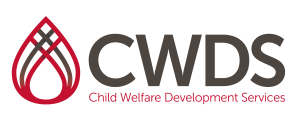CWDS Curriculum
Supervising, Coaching and Accountability – County Specific
Level: Advanced Practice – Supervisor
Credits: 18
Intended Audience: New and experienced supervisors
Intended Objectives:
- Identify how processes and automation tools including but not limited to: TDM (Team Decision Making Meetings) and RAM (Risk Assessment Meetings), county safety and risk assessment tools, Safe Measures, CMS/CWS Case Plan approvals and closing summaries are utilized by the supervisor with their unit workers for ensuring safety, risk, protective capacity and MSLC are addressed in child welfare cases.
- Identify supervisory supports processes and tools that supervisors may utilize in assisting a worker with a complex child welfare case.
- Identify the processes and requirements for documenting case consultation with staff.
- Demonstrate through the case consultation process, how to assess workers ability to
articulate Safety, Risk, Protective Capacity and Minimum Sufficient Level of care in a
complex child welfare case. - Demonstrate through the case consultation process, how to coach workers to articulate safety, risk, protective capacity factors and MSLC and the worker’s critical thinking process in a complex child welfare case.
- Demonstrate the use of transfer of learning tools associated with the Statewide
- Standardized Core to reinforce the concepts of Safety, Risk, Protective Capacity and Minimum Sufficient Level of Care.
- Demonstrate how to prepare workers to present cases in individual supervision and team meeting venues.
- Demonstrate effective and efficient unit meetings to include:
- Preparing Agendas
- Formulating Minutes
- Preparing documentation for certifying “training” completed within a unit meeting
Topics Include:
- Identification of the roles the supervisor employs when consulting with workers on child welfare cases
- The supervisor’s use of various tools and processes in consultation with staff to ensure staff are able to articulate and document the decision points of: safety assessment, safety planning, risk assessment, case planning.
- The role of coaching staff in articulating safety and risk factors and subsequent decisions based on behaviors and evidence
- Addressing decision making points with the worker throughout the life of a case: identification and implementation of tools and processes
- Identification and application of case consultation skills
- The supervisor’s role in identifying worker’s training needs and preparing workers for training
- Essential elements in running unit meetings
CalSWEC Competencies Addressed:
2.2 Student is able to critically evaluate the relevance of commonly utilized assessment criteria and intervention models in terms of their usefulness with diverse ethnic and cultural populations.
3.2 Student demonstrates the ability to perform a preliminary safety assessment and to monitor the safety of the child through ongoing assessment of risk.
8.6 Student demonstrates knowledge of how organizational structure, climate, and culture affect service effectiveness, worker productivity and morale.
Essentials of Child Welfare Supervision Competencies Addressed:
- Be able to develop specific unit level performance indicators tied to key outcomes and the means to track them.
- Be better able to clearly communicate performance expectations and standards to the staff you supervise and utilize factors that motivate staff towards improved job performance.
- Create a learning environment focuses on the development/maintenance of competencies, professional judgment and sound decision making through strength based supervision.
- Assess staff readiness for learning, apply principles of adult learning and assist staff to transfer knowledge/skills learned in training to their jobs.
- Understand the process of transfer of learning and what needs to occur before, during and after training to increase effectiveness.
- Be better able to set specific performance expectations for the staff in the areas of assessment, case planning and intervention.
- Identify critical issues such as safety risk protective capacity in case supervision
- Strengthen the ability to oversee and develop the team-based skills of staff in the casework process through coaching and feedback.
Supervision and Management



